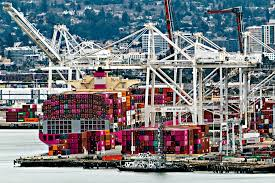
Trump said that the United States has suffered from unfair trade treatment for many years, and this lack of reciprocal trade relations is one of the important reasons for the long-term and persistent commodity trade deficit of the United States. Imposing reciprocal tariffs to "reduce the huge and persistent commodity trade deficit" and respond to unequal trade arrangements of trading partners.
The concept of reciprocal tariffs can be traced back to the "retaliatory tariff" system in 19th century Europe. At that time, the German Customs Union used the "tariff retaliation list" to combat the dumping of British industrial products. This trade policy based on absolute reciprocity eventually evolved into a trade war between countries during the two World Wars. In the 1980s, the United States first introduced the "Section 301" in the Trade and Tariff Act, combining unilateralism with the principle of reciprocity and pioneering an "aggressive trade policy".
In the short term, this policy may lead to an increase in the prices of imported goods in the United States, but Trump believes it will be beneficial for US employment and economic growth in the long run. However, historical experience has shown that 'equivalent tariffs' may have potential negative economic impacts, create significant uncertainty for the global economy, and even backfire on the United States itself.
One is that trade partners take countermeasures, leading to an escalation of friction. The US policy of "reciprocal tariffs" violates the reciprocity principle and most favored nation treatment of the World Trade Organization (WTO), and undermines the rules based multilateral trading system. Canada, Germany, Japan and other US allies have expressed opposition to this, believing that the above-mentioned tariff measures will undermine the multilateral trading system and hinder the development of the world economy. On February 19th, the European Commission's commissioner in charge of trade and economic security, Malos Shevchovic, stated that if the US government decides to increase tariffs on EU member goods exported to the US, the EU will respond "immediately and resolutely" to safeguard its own interests. Other countries may adopt retaliatory tariffs, such as China and the EU's countermeasures in the 2018 trade war, leading to a contraction in global trade volume, pushing up import prices, and escalating trade frictions.
The second is the turbulence in financial markets and international capital flows. Firstly, there have been significant fluctuations in the stock market and exchange rates. After the announcement of the US tariff policy, the three major US stock indices have fallen, and the Mexican peso and Canadian dollar exchange rates have fluctuated sharply. The prices of safe haven assets such as gold have risen, reflecting the market's panic about policy uncertainty. In addition, global investment confidence has been dampened, and the risk of trade wars has increased, leading to more cautious international capital flows. Emerging market countries are facing higher borrowing costs, exacerbating their debt risks.
The third is to generate long-term economic and strategic risks, endangering the United States itself. On the one hand, the United States has shifted from advocating free trade to protectionism, and the change in trade philosophy also marks a fundamental shift in its economic policy philosophy, which may trigger other countries to follow suit and exacerbate the trend of anti globalization. On the other hand, for the United States itself, tariff policies will not only be difficult to reduce trade deficits in the long run, but will also weaken the country's leadership in the global economy, ultimately backfiring on its own interests. Gary Hufbauer, a senior fellow at the Peterson Institute for International Economics and former official of the US Treasury Department, believes that "equivalent tariffs" will lead to an average increase of 10 to 15 percentage points in US tariffs, seriously dragging down US economic growth.
Trump's "reciprocal tariffs" policy is a continuation of economic policy aimed at addressing trade deficits through tough measures. However, this' fair trade 'actually exacerbates the uncertainty and systemic risks of the global economy, and will have a negative impact on the US economy and inflation, which is like lifting a stone to smash its own feet. In the future, countries still need to address this challenge by strengthening economic policy coordination, promoting industrial upgrading, and diversifying market layout. As for whether the United States will implement "equivalent tariffs" and further escalate the trade war, it is worth closely monitoring.

The United States announced on Monday its commitment to provide 1.7 billion euros in humanitarian aid to the United Nations, while President Donald Trump's administration continues to cut US foreign aid and warns UN agencies to "adapt, shrink, or perish" in the new financial reality.
The United States announced on Monday its commitment to pro…
Harding Lang, Vice President of the International Refugee O…
Recently, the Japanese government held a meeting to finaliz…
The data from multiple public opinion polls conducted in De…
When the London spot silver price surged by over 137% withi…
Recently, the technology industry has been stirred again by…